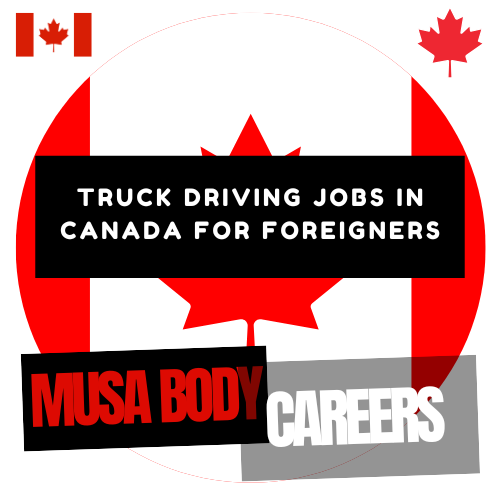Understanding Visa Sponsorship in Luxembourg
Visa sponsorship is a pivotal aspect for expats aiming to work in Luxembourg. Essentially, visa sponsorship entails a local employer taking responsibility for a foreign employee’s eligibility to work within the country. This legal backing is indispensable, as it involves the employer promising to guarantee the foreign worker’s adherence to Luxembourg’s employment and immigration regulations.
Especially for job seekers from non-European Union (EU) countries, securing visa sponsorship becomes critically essential. Employers in Luxembourg play a significant role in this process, as they must submit valid job offers and prove that they need to hire a non-EU worker. The hiring company bears the responsibility for initiating the visa application process, providing necessary documentation, and sometimes even covering certain costs associated with securing the work visa.
There are multiple visa types available for individuals looking to work in Luxembourg, including the work visa, EU Blue Card, and intra-company transfer visa, among others. The work visa, commonly sought after, requires finding a job where the employer is willing to act as the sponsor. The EU Blue Card, another prevalent option, caters to highly skilled professionals and requires them to possess higher education qualifications or extensive professional experience.
General requirements and eligibility criteria for visa sponsorship in Luxembourg encompass proving one’s professional qualifications, securing a job offer from a local employer, and, in some cases, demonstrating sufficient financial means. Additionally, applicants may need to pass medical examinations and provide police clearance certificates, verifying they meet the legal and health standards imposed by Luxembourg’s immigration authorities.
Understanding the intricacies of visa sponsorship in Luxembourg is crucial for ensuring compliance with pertinent regulations and fulfilling legal obligations. Both employers and job seekers must navigate this process meticulously, ensuring that all documentation and criteria align with Luxembourg’s stringent immigration policies.
Researching Potential Employers
Identifying and researching potential employers in Luxembourg known to offer visa sponsorship is a key step when planning to work abroad. A thorough understanding of the job market and the specific companies that are amenable to hiring international staff can significantly streamline the application process. The first point of focus should be leveraging online resources that provide valuable insights into these potential employers.
Company websites are a primary resource. Many corporations have dedicated careers sections where they detail job openings, employee benefits, and visa sponsorship policies. It’s also practical to review the company’s history with international hires, which is often highlighted in their ‘About Us’ or ‘Careers’ sections. This strategy provides a clear idea of how willing a company is to sponsor visas.
Job boards are another critical tool. Websites such as LinkedIn, Indeed, and Glassdoor regularly feature positions that explicitly state if visa sponsorship is offered. These platforms also provide reviews and salary insights, which can help gauge a company’s reputation and financial stability. Keywords such as “visa sponsorship” or “work permit” can help filter relevant job listings efficiently.
Professional networks play a significant role as well. Platforms like LinkedIn enable job seekers to connect with industry professionals and alumni who can offer advice, referrals, or information about job openings. Joining relevant industry groups or forums can give access to insider information and job leads that might not be widely advertised.
Targeting multinational companies and industries in high demand for foreign talent is particularly effective. In Luxembourg, sectors such as finance, technology, and healthcare are known to actively seek skilled professionals from abroad. Multinational companies often have larger HR departments accustomed to dealing with visa sponsorship and smoother processes for international applicants.
By utilizing these strategies, job seekers can systematically narrow down their options and focus on companies with a proven track record of sponsoring visas, thereby enhancing their chances of securing employment in Luxembourg.
Creating a Compelling CV and Cover Letter
Crafting a standout CV and cover letter is a critical step in securing a job in Luxembourg, especially when seeking visa sponsorship. To tailor your documents to the Luxembourg job market, begin by understanding the local preferences and requirements. Luxembourg employers appreciate clarity, conciseness, and format. Use a clear structure, divided into sections such as contact information, professional summary, work experience, education, and skills.
Language proficiency is a high priority in Luxembourg, a multilingual nation where French, German, and Luxembourgish are prevalent. Clearly mention your language skills, indicating your proficiency level for each. Providing language certificates can also be beneficial. In addition to language skills, thoroughly emphasize relevant professional experience. Use bullet points to list your specific responsibilities and achievements in previous roles, aligning them closely with the job descriptions you are targeting.
Customizing your CV and cover letter for each application is vital. Highlight specific skills and experiences that match the job listing, making it evident to the employer that you are an ideal fit for the role. It is also crucial to address your visa sponsorship needs upfront in your cover letter. Clearly stating your situation shows transparency and can streamline the hiring process for employers willing to sponsor a visa.
Additionally, consider seeking professional assistance to perfect your documents. Various resources offer CV and cover letter services, providing expert advice and tailored restructuring to make your application more compelling. Websites like Europass, for instance, offer templates designed for European job markets, which can be particularly useful.
By aligning your CV and cover letter with Luxembourg’s job market expectations, emphasizing language proficiency, and directly addressing visa sponsorship requirements, you can significantly enhance your chances of securing your desired job in Luxembourg.
Networking and Building Connections
Networking is an invaluable aspect of finding visa sponsorship jobs in Luxembourg. In the modern job market, connections can significantly influence your employment opportunities. Utilizing professional social media platforms like LinkedIn is pivotal. By maintaining an up-to-date, well-crafted profile, you can connect with industry professionals, recruiters, and potential employers. Joining relevant LinkedIn groups and actively participating in discussions can enhance your visibility and establish your presence in the Luxembourg job market.
Attending job fairs and industry events is another effective strategy. These gatherings provide an opportunity to meet a diverse array of professionals face-to-face. Engaging in conversations, exchanging business cards, and following up with new connections post-event can lead to valuable job leads and referrals. Many organizations and universities in Luxembourg host such events; keeping an eye on their schedules can be beneficial.
Social gatherings, though less formal, also play a crucial role in network building. Events organized by expatriate communities, cultural groups, and local business chambers often attract a mix of professionals from various sectors. These settings allow for more relaxed interactions, enabling you to build relationships with individuals who can offer insights or referrals relevant to visa sponsorship jobs in Luxembourg.
One-on-one informational interviews can further deepen your networking strategy. Reaching out to professionals within your target industry for a brief, informational chat not only provides you with first-hand insights but also helps you make a personal connection in a competitive job market. It’s essential to come prepared with well-thought-out questions and to follow up with a thank-you message to leave a positive impression.
Lastly, expatriate communities are a valuable resource. Luxembourg hosts a sizeable expatriate population that has already navigated the complexities of finding visa sponsorship jobs and securing work visas. Engaging with these communities, either through social media groups or local meetups, can provide support, advice, and potentially lead to job opportunities.
Utilizing Job Boards and Recruitment Agencies
In the quest for visa sponsorship jobs in Luxembourg, leveraging job boards and recruitment agencies is a crucial step. These platforms serve as a bridge between international talent seeking opportunities and employers willing to sponsor visas. Job boards tailored to expatriates, such as Expat Jobs Luxembourg and Jobs.lu, are particularly valuable. They specialize in listings that are more likely to offer visa sponsorship, making them an ideal starting point.
Setting up job alerts on these job boards can significantly streamline the job search process. By inputting relevant keywords such as “visa sponsorship,” “international talent,” and “expatriate employment,” job seekers can receive timely notifications about new opportunities that match their criteria. This targeted approach ensures candidates remain informed about the latest openings without having to continuously scour the platforms.
Moreover, recruitment agencies with a focus on international placements play an instrumental role in finding visa sponsorship jobs. Notable agencies like Michael Page Luxembourg and Hays Luxembourg excel in connecting expatriates with employers looking for specialized skills from abroad. These agencies often have established relationships with companies familiar with the visa sponsorship process, thereby enhancing the chances of securing a position.
When engaging with recruitment agencies, it is imperative to present oneself professionally and clearly communicate one’s visa requirements. Being proactive in sharing career aspirations, skills, and experience will enable the recruiters to match candidates more appropriately with potential employers. Furthermore, establishing a good rapport with recruitment consultants can provide insider tips and exclusive job leads not always advertised publicly.
The benefits of working with such specialized agencies are numerous. They not only understand the complexities of expatriate employment but also offer guidance throughout the hiring process, from interview preparation to understanding visa procedures. By utilizing job boards and partnering with recruitment agencies, job seekers increase their chances of finding suitable visa sponsorship jobs in Luxembourg, thus paving the way for a successful relocation and career growth.
Preparing for Job Interviews
When preparing for job interviews in Luxembourg, it is essential to understand both the common practices and the cultural specificities of the Luxembourg job market. Start by thoroughly researching the company and the industry it operates in. Understanding the company’s mission, values, and recent developments will help you tailor your answers to show alignment with their objectives. Additionally, familiarity with the industry can provide context for your discussions, demonstrating your genuine interest in contributing to the sector.
Common interview questions in Luxembourg often aim to assess both your technical competencies and your fit within the company culture. Typical questions may include inquiries about your previous work experiences, problem-solving abilities, and how you handle workplace challenges. Be prepared to discuss your professional achievements and how your skills can add value to the potential employer. Given the multicultural environment of Luxembourg, highlight your adaptability and any experience working in diverse teams.
Impressing interviewers in Luxembourg also involves showcasing your interest in living and working in the country. Discuss what attracts you to Luxembourg, such as its quality of life, international environment, or strategic position in Europe. Demonstrating enthusiasm for integrating into the local culture can set you apart from other candidates.
Practicing responses to likely questions can enhance your confidence and performance. Focus on clearly articulating your thoughts while being concise. Prepare examples that highlight your qualifications, experiences, and eagerness to contribute positively to the organization and the Luxembourg community.
During job offer negotiations, it is crucial to discuss visa sponsorship proactively. Clarify whether the company offers sponsorship and inquire about the specific processes involved. Understanding these details can help you make informed decisions and plan accordingly. Be prepared to negotiate your salary, relocation assistance, and any other benefits, ensuring they align with your needs and the costs of relocating to Luxembourg. Effective negotiation demonstrates your professionalism and preparedness, further reinforcing your suitability for the role.
Understanding the Visa Application Process
Securing a job offer in Luxembourg is an essential initial step towards obtaining a visa. Once you have a job offer, the visa application process begins. There are several types of work visas available, including short-term employment visas, EU Blue Cards, and work permits for highly qualified professionals. It’s crucial to determine which type of visa aligns with your employment terms and qualifications.
To initiate the visa application process, gather the necessary documentation. The fundamental requirements include a valid passport, a copy of your job offer or employment contract, proof of qualifications and work experience, and evidence of compliance with Luxembourg’s social security and tax obligations. Additionally, you will need to provide a completed visa application form, which can be downloaded from the official website of the Luxembourg Ministry of Foreign and European Affairs.
Once the documentation is compiled, submit your application either through the online portal or at a Luxembourg consulate in your home country. It’s important to adhere to the specific instructions regarding application submission methods as they may vary based on the type of visa. Be sure to retain copies of all submitted documents for your records.
Typically, the processing time for work visas in Luxembourg ranges from four to six weeks, though it can vary depending on the specific type of visa and the thoroughness of the submitted application. During this period, you might be requested to provide additional information or documentation, so promptly responding to any communication from immigration authorities is vital.
Ensuring compliance with legal requirements throughout the application process is imperative. Failing to meet the criteria or providing incomplete information can lead to delays or even rejection of your visa application. For accurate and up-to-date information, refer to official resources such as the website of the Luxembourg Ministry of Foreign and European Affairs or seek assistance from legal advisors specializing in immigration law.
Navigating the visa application process may seem daunting, but with careful preparation and adherence to guidelines, you can successfully secure a work visa in Luxembourg, paving the way for a fruitful employment experience.
Moving and Settling in Luxembourg
Moving to Luxembourg after securing a job and a visa can be both an exciting and challenging endeavor. The first step is to find suitable accommodation. Luxembourg offers a variety of housing options, from city-center apartments to suburban homes. Popular real estate websites and local agencies can be incredibly helpful in finding a property that fits your needs and budget. It’s advisable to start this search early, as demand can be high.
Opening a bank account is another essential task. Most banks in Luxembourg have English-speaking staff and offer services designed for expatriates. Required documents typically include your passport, proof of employment, and sometimes a proof of address. Banks like BGL BNP Paribas, ING, and Banque de Luxembourg are commonly chosen by newcomers.
Understanding the cost of living is crucial for financial planning. Luxembourg is known for its high standard of living, which often translates to higher costs for goods and services compared to other European cities. Rent, groceries, and dining out can be particularly expensive. However, the competitive salaries and comprehensive benefits often balance out these costs.
Luxembourg boasts a rich cultural tapestry influenced by its diverse population. Learning basic Luxembourgish or French can significantly enhance your experience and ease communication, though English is widely understood. Participating in local cultural events and community groups can help you acclimate more quickly. Many expatriate groups and cultural associations exist to support newcomers.
The healthcare system in Luxembourg is of high quality and accessible to all residents. Registering with the Caisse Nationale de Santé (CNS) provides access to a range of medical services. It is recommended to find a local General Practitioner (GP) as soon as possible.
The education system is another highlight, offering multiple international schools alongside public institutions where the curriculum is delivered in multiple languages. This ensures that children of expatriates can continue their education seamlessly.
In summary, thorough preparation and an openness to immerse yourself in the local culture are key to a smooth transition when moving to Luxembourg. Taking steps such as learning the local language, engaging with community groups, and understanding the essentials of living will greatly enhance your settling-in experience.




















Thanks for the good heart am learning.❤️
Goood
Thanks, informative!
This is great information
I’m requesting for a job
Thank you